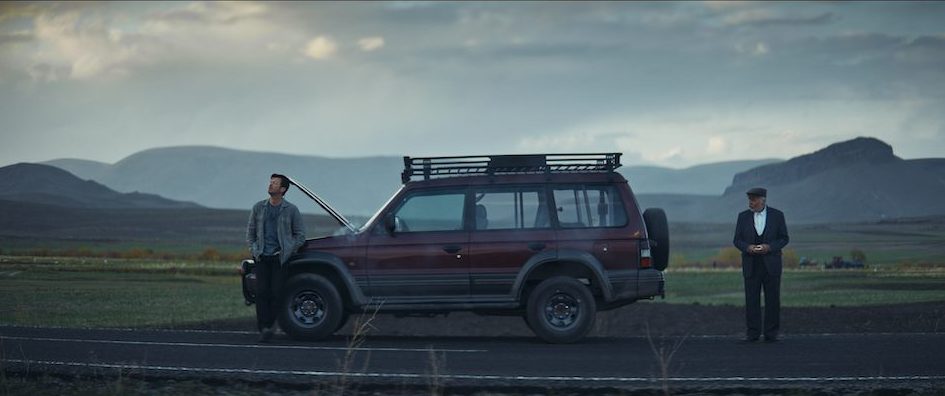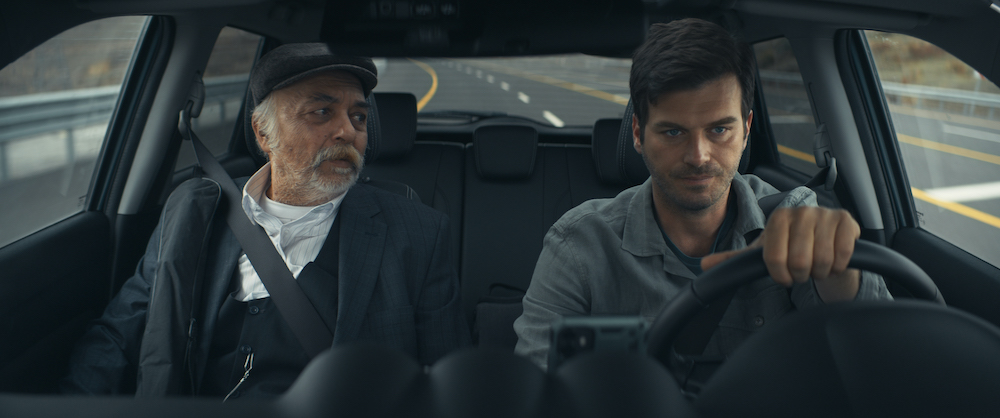Netflix’s ‘The Festival of Troubadours’ follows the story of a father and son who are seeing each other after twenty-five years. Heves Ali is a musician who left his family a long time ago. But now, his health is on a decline and after visiting the grave of his wife, he decides to pay a visit to his son, Yusuf, who is a lawyer and very disillusioned by his father. When Yusuf discovers that Heves is going to a music festival, he decides to accompany him on the trip. Along the way, old feelings are dug up as the father and son come to terms with the time they didn’t get to spend with each other. Directed by Özcan Alper, the film projects a very realistic and relatable portrayal of the father-son relationship. Does this mean it is inspired by true events? Let’s find out.
The Festival of Troubadours is Based on Kemal Varol’s Novel

No, ‘The Festival of Troubadours’ is not based on a true story. It is based on the Turkish award-winning novel, titled Aşıklar Bayramı , written by Kemal Varol. He was involved in writing the script of the film along with director Özcan Alper. The author has dedicated the novel to his father, using his own life experiences to craft the complicated father-son relationship that becomes the focus of the story. He poured his own feelings about his father into it and found that writing it helped him with his own grief. He was also influenced by other writers and directors, like Yusuf Atılgan, Hasan Ali Toptaş, Orhan Pamuk, Kafka, and Nuri Bilge Ceylan, who have written on similar issues.
For director Özcan Alper, reading the novel left an indelible mark on his heart. He’d been following Varol’s work for some time and was turned towards his book when another reader recommended it to him. He finished the book in one sitting and was taken over by the layered relationship between Heves and Yusuf. The relevance of the subject matter and how strongly it resonated with him convinced Alper that this novel needed to be made into a movie. To keep it as faithful an adaptation as possible, he got the author involved with the process of scriptwriting.
One of the things about the story that caught Alper’s fancy was the prospect of a road movie. Putting two characters who are related but don’t really know each other and have a lot of pent-up emotions about one another in a closed setting, even though they are constantly on the move, proved to be a challenge that the director was all too happy to tackle. He believes that road movies are a great canvas to paint the deeper transformations and the journeys of the characters. It also gives more ground for confrontation, and in such a setting, the character can’t run away.
Above all, however, it is about forgiveness, not only to others but to oneself. Varol’s story and the setting of the road trip allowed the director to make the characters more fleshed-out, while also touching on their personal insecurities and showing how their other relationships have been affected due to the one they have with each other. While the book goes into a lot of depth when it comes to the feelings of the characters, the movie cuts down a lot of things and strays from the source material. Varol said that their aim while turning the novel into a screenplay was to keep the feeling of the story intact. Considering all this, we can say that while the film is not based on a true story, it is informed by the real-life experiences of the people involved in bringing it to the screen.
Read More: Best Turkish Shows on Netflix


You must be logged in to post a comment.